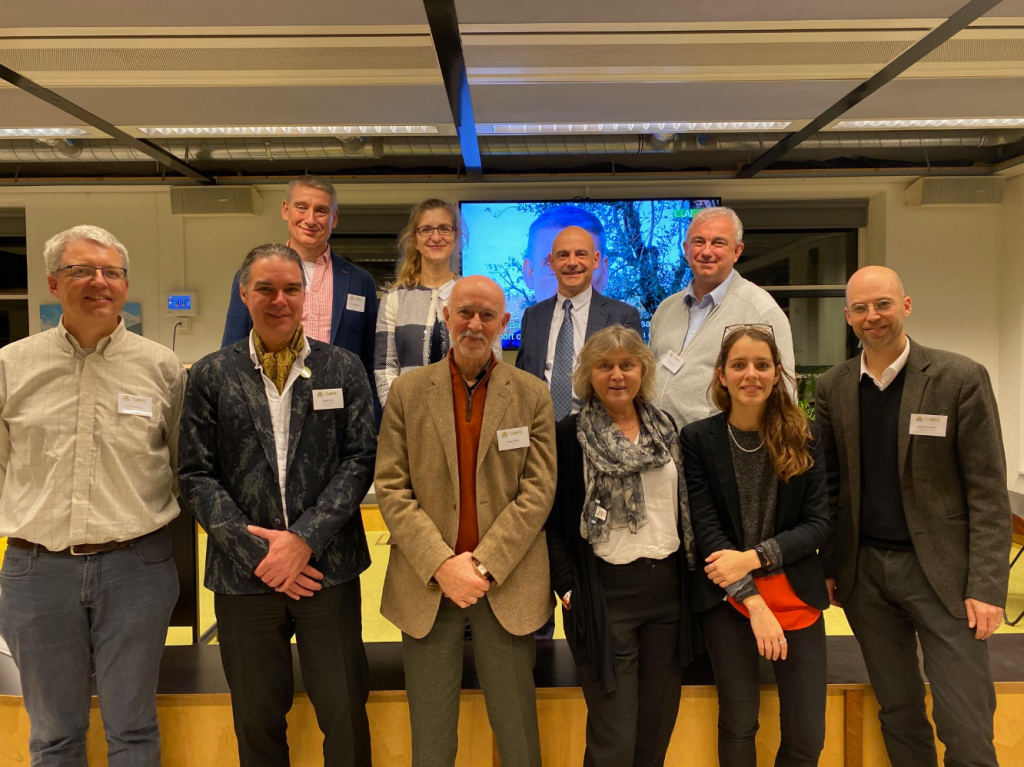AI Special Interest Group on Space
On the 6th of September 2019, the creation of the World’s first AI Special Interest Group, or SIG, dedicated to Space and related sciences, was announced by the European Space Agency and CAIRNE.
The SIG’s goal is to accelerate the development of both AI and space-related research, and forms a key part of ESA’s wider strategy to accelerate the use of AI in Europe’s space and related industries and research communities. It will have a very practical focus, organising events and workshops to bring European AI and space experts together, supporting exchanges between these communities and identifying the key themes for collaboration that could be funded by ESA’s and other research programmes. It will offer the perfect opportunity for scientists to tackle major problems in space related sciences and to challenge AI researchers to create new methods and approaches. Monitoring climate change using satellites measurements, designing autonomous rovers to explore other planets, or identifying objects using astronomical observatories in orbit: all these issues are very rich in data and for this reason are an ideal field of application for the latest AI techniques, and in turn are expected to generate new AI science. As a result, the SIG will not only develop AI for space-related topics, but help the development of all AI technologies in Europe, including machine learning, automated reasoning, planning and optimisation, robotics and multi-agent systems. Many areas of AI will take advantage of the stimulating and cooperative activities to be created by ESA and CAIRNE. PRESS RELEASE, Frascati, 06 September 2019 The ESA/CAIRNE “AI Special Interest Group on Space” is born

First meeting of SIG Space, The Hague, 9 – 10 December 2019 (Top, left to right: Iarla Kilbane-Dawe, Bianca Hörsch, Alessandro Donati, Saso Dzeroski. Bottom, left to right: Leon van der Torre, Holger Hoos, Malik Ghallab, Raffaella Franco, Sara Aparicio (support), Leopold Summerer)
Members of the AI Special Interest Group on Space:
-
- Enrique Alba, University of Málaga, Spain
- Rita Cucchiara, University of Modena, Italy
- Alessandro Donati, Deputy-Head of ESA’s Digital Technologies community, Germany
- Saso Dzeroski, Jozef Stefan Institute, Slovenia
- Raffaella Franco, Head of ESA’s Digital Technologies community, The Netherlands
- Malik Ghallab, Director of Research, CNRS, France
- Holger Hoos, Leiden University, The Netherlands
- Bianca Höersch, ESA Chief Digital Officer, France
- Pierre-Philippe Mathieu, Head of ESA Phi-Lab Explore, Italy
- Leopold Summerer, Head of ESA Advanced Concepts and Studies Office, The Netherlands
- Leon van der Torre, University of Luxembourg, Luxembourg
- Manuel López-Ibáñez, University of Malaga, Spain
